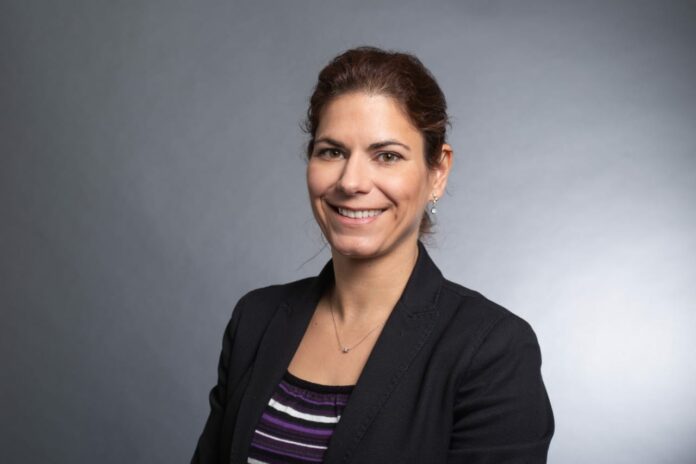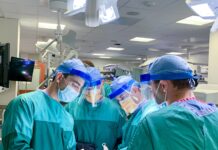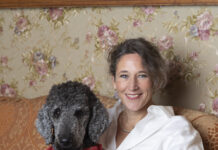Like they say death is just the beginning, it surely is for Dr. Silke Grabherr. She is an excellent forensic pathologist currently practising in Switzerland. She graduated from the University of Innsbruck, Austria with a degree in medicine and surgery. In 2004, she obtained her doctorate from the same university and moved to Bern for a one-month internship at the Institute of Forensic Medicine. Her sheer hard work provided her with the opportunity to work with Prof. Richard Dirnhofer who is recognized as the Father of Virtual Autopsy. She had internships at several other specialities as well but it was the Institute for Forensic Medicine where she found her real interest.
Revolution of Virtual Autopsy
Dr. Grabherr does not believe in impossibilities. She introduced postmortem angiography to the world and revolutionised forensic medicine, especially virtual autopsy, forever. Standing by the father of virtual autopsy and modifying it for him, is a boss move. Even the beginning of Dr. Grabherr’s career was rewarding. In 2016, she became the youngest Director of the University Center for Legal Medicine Lausanne-Geneva (CURML) and the youngest full professor of the Universities of Lausanne and Geneva. She was only 35!
“If you want something really bad, just do everything you can to do it. Don’t believe anything else. There is nothing impossible. Everything is possible. Just find the way.”
Dr. Silke Grabherr
Postmortem Angiography: Modernising Virtual Autopsy
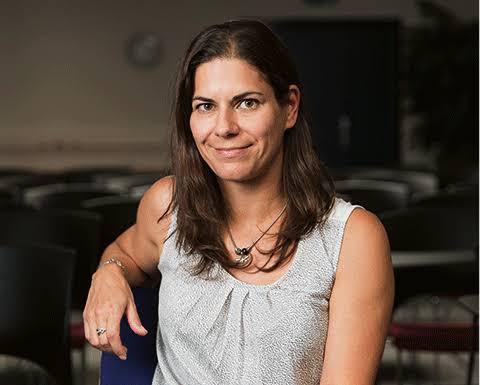
Postmortem angiography is a minimally invasive forensic technique that involves injecting a substance in the dead body to refill blood vessels to visualize them on screen without causing any damage to the anatomical structures. It is beneficial in determining vascular lesions, injuries and bleeding as causes of death.
“Today, it is a recognized procedure for the vascular system in the postmortem. There are other techniques as well but they also have components from the procedure I devised. Once the impossible becomes possible and begins working everyone changes their stance and says ‘Of course, it is working’. With this procedure, we can investigate the vascular system of deceased persons and a virtual autopsy is now capable of producing much better outcomes than before.”
Dr. Silke Grabherr
The more they say it is not possible, the more I want to do it!
When nobody believed Dr. Grabherr’s genuine idea she believed in herself. Eventually, she amazed everyone by making postmortem angiography a reality.
“It was an instant idea. Experts commented about the fact that angiography cannot be performed after death but I didn’t see why. They found it impossible. I denied the impossibility. It was clear to me. I had to do perfusion circulation. The problem was I was not provided everything I needed for this experiment as they were quite expensive. I found a way out, I had to. In my personal life, it proved my worth. I think everyone has the right and capacity to do what they believe is possible. If your professors say it is not possible, stopping right there is not the right thing to do, especially not for me. The more they say it is not possible the more I want to do it.”
Dr. Silke Grabherr
Tourism & Hotel Management to Forensic Medicine
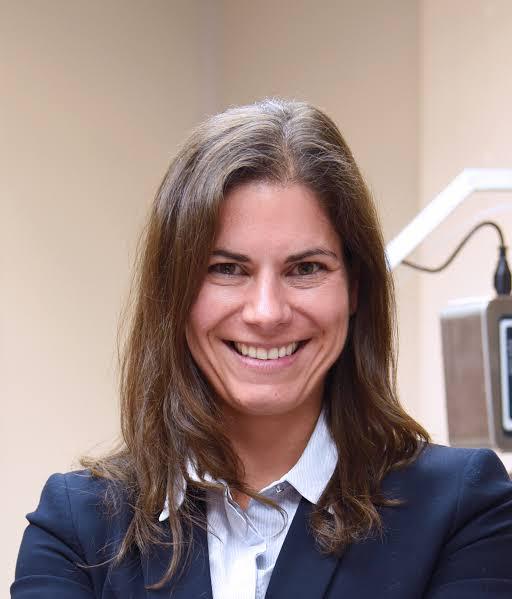
Back in childhood, Dr. Silke Grabherr never imagined she would become what she is today. In adolescence, she was more inclined towards tourism and hotel management and never in healthcare. After completing her school for tourism and hotel management, she had the chance to choose a career path for herself. It was her mother who suggested medicine. An interesting turn of events led her to become a doctor, otherwise becoming a police officer was also on the list. Interestingly, today the world recognizes her as an amalgam of a medical doctor and a police officer – a forensic expert.
“I never thought of doing medicine. I had special schooling. It was a school for tourism and hotel management. So my first job options were being a cook or a receptionist. The aim was to work in tourism. At the end of school, we met a group of professionals for career guidance. At the age of 19, I had to think about whether I wanted to stay in tourism or choose another career. That group of professionals asked us various questions about our values and preferences. At the end of my list, I had a nurse, police officer and medical doctor. My mother suggested that I take medicine. In case of failing the test I could switch to become a police officer.”
Dr. Silke Grabherr
Forensic Medicine is ‘Yes’ or ‘No’ and Nothing in Between
Entering the professional world after graduation didn’t fascinate her. She worked in several specialities but nothing interested her. The attributes and environment were not what she imagined. She was disappointed. Finally, it was the Institute of Forensic Medicine in Bern that matched her criteria of interest. She instantly knew that this was where she belonged.
“Dealing with perpetrators and dead people is a different profession. You are either made for it or you are not made for it. You can’t get used to it. We deal with perpetrators, living victims, victims of violence and rape, battered children, people killed by 78 stabs, shot or hit by train, and much more. People think they can do it. They come, they try for some days and realise they can’t.”
Dr. Silke Grabherr
Legal Medicine, Courtrooms, Criminals and Beyond
Dr. Silke Grabherr briefly talks about the nature of her profession – forensic medicine. She highlights the variation in laws and justice system even within two states, two regions and two provinces. Dr. Grabherr stresses maintaining neutrality towards every person under custody or related to the crime. Unless someone is proven by the court as a criminal or victim, they are not. This makes it quite important to deal with suspects, victims, and perpetrators neutrally.
“I work in Switzerland and I go to court a lot. Although Switzerland is a small country it has many states and each state has different laws and systems. Interestingly, forensic medicine greatly changes depending upon the region where you work. Practising forensic medicine in English-speaking countries is different from that in German- and French-speaking countries. The justice system varies from region to region and therefore the strategy to practice also changes. I deal with every perpetrator, suspect and victim neutrally. Unless they are proven by the court, they are not criminals. Sometimes I examine victims and know that the perpetrator is actually the victim whereas the victim is just pretending to be a victim. There is no black and white. Everything is grey.”
Dr. Silke Grabherr
Dealing with the Dead and Deadlines
Dr. Silke Grabherr respects and truly finds her profession worthy. Like every profession, being a forensic pathologist also becomes stressful. Her profession demands attention to every detail, presence of mind, courage and confident analysis all at the same time.
“Sometimes I want to go to a restaurant in the middle of a week, give time to my hobbies and do sports but I can’t. There are always deadlines waiting for me. Whenever I feel frustrated with all the stress I remind myself of all the positive things my job is rewarding me with.”
Dr. Silke Grabherr
Despite the hectic routine and no time for herself, Dr. Grabherr is content with her professional life. Today, she feels fulfilled and satisfied with herself and her achievements at such a young age.

